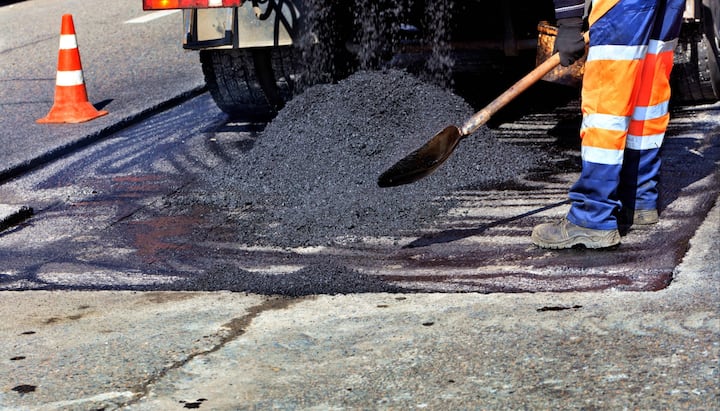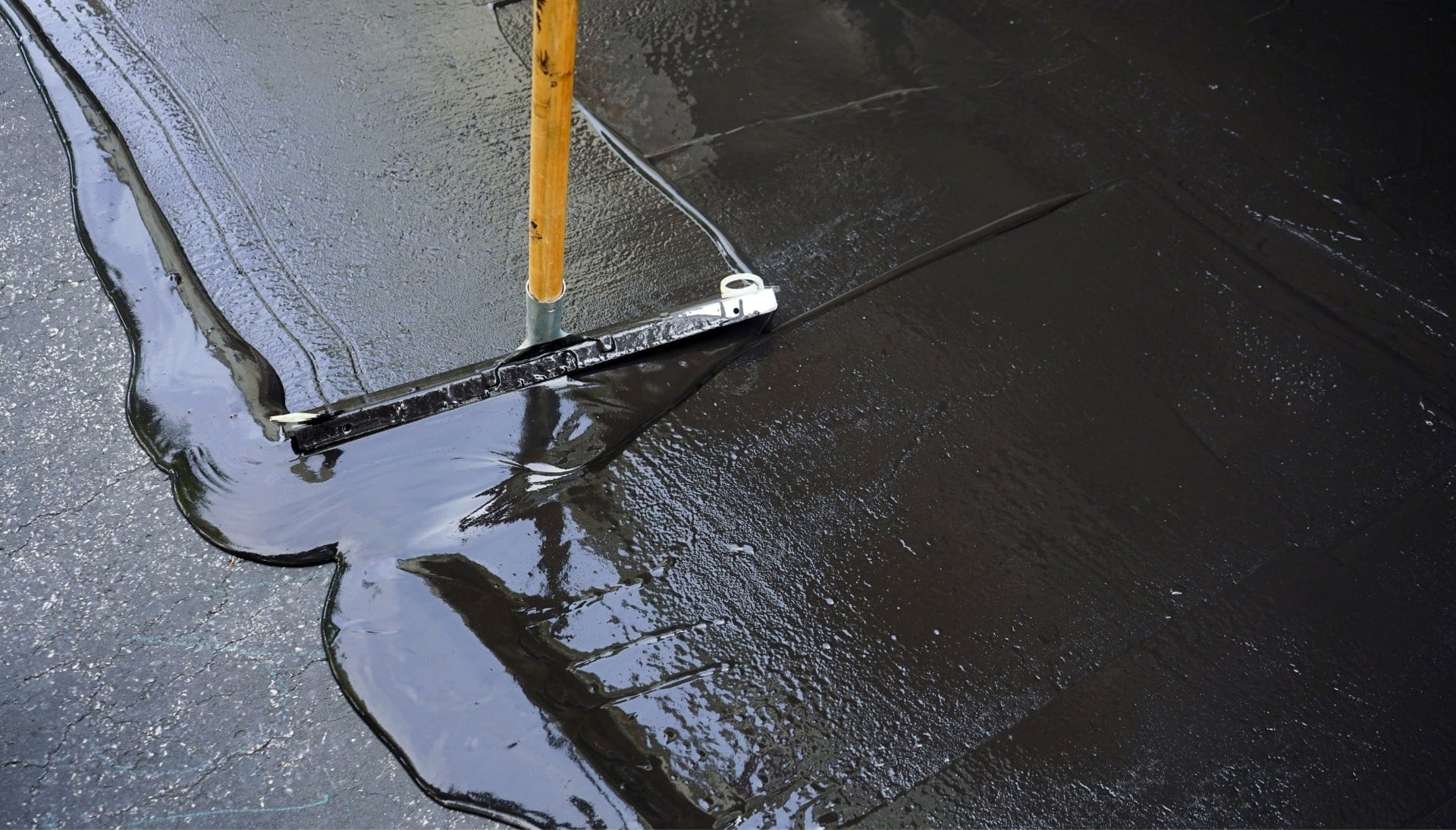Asphalt Contractors of Lincoln
Welcome to the trusted source for professional asphalt services in Lincoln. As renowned contractors, we possess the expertise and resources to elevate your property with superior asphalt solutions. Whether you require a robust driveway for seamless access or a pristine parking lot to enhance your commercial space, our team is dedicated to delivering exceptional craftsmanship and unparalleled customer satisfaction. Our comprehensive range of services includes asphalt paving, repairs, resurfacing, and maintenance. We utilize cutting-edge techniques and durable materials to guarantee the integrity and longevity of our work. Committed to providing value for every investment, we ensure cost-effective solutions that align with your budget and project goals. Let us transform your outdoor spaces with the sophistication and durability of asphalt. Contact us today for a consultation and experience the unparalleled expertise of Asphalt Contractors of Lincoln.

About Us
Looking for Expert Asphalt Paving Contractors in Lincoln, Nebraska?
When your Lincoln property needs asphalt paving services, don’t hesitate to contact our team of experienced contractors. We’ll ensure your project is completed with the utmost quality and professionalism. Our commitment to excellence is evident in every aspect of our work, from material selection to meticulous installation.
Asphalt: A Pavement Staple
Asphalt is a versatile and durable construction material composed of a mixture of bitumen, sand, and gravel. It’s used for a wide range of applications, including:
- Roadways and parking lots
- Driveways and walkways
- Runways and taxiways
- Playground surfaces
Since When Has Asphalt Been Used As A Construction Material?
The use of asphalt as a construction material dates back thousands of years. The earliest known use of asphalt was in Lincoln, where it was used to build a street in 625 BC. Asphalt was also used by the Babylonians to build the walls of Babylon, and by the Romans to build roads and aqueducts.
Interesting Facts About Asphalt
Asphalt, a ubiquitous material in our infrastructure, holds intriguing facts that may surprise you. Lincoln’s asphalt experts reveal some of these curiosities: One fascinating fact is that asphalt is a natural material derived from crude oil. Despite its dark appearance, asphalt is highly water-resistant, making it an ideal choice for roofing and road construction. Did you know that the first known use of asphalt occurred over 6,000 years ago? The ancient Mesopotamians utilized it as an adhesive and sealant for their constructions. Another surprising fact is that asphalt is not simply black in color. Its appearance can range from dark brown to almost black, depending on the presence of other minerals and components. Asphalt is also surprisingly elastic, which is why it can withstand the constant flexing and weight of vehicles on roads. This elasticity allows it to absorb and distribute stresses, reducing wear and tear. Furthermore, asphalt is a vital material for modern society, contributing to economic growth and environmental protection. By efficiently transporting goods and services, asphalt reduces energy consumption and promotes sustainable infrastructure.
Different Types Of Asphalt
Hot Mix Asphalt
Hot asphalt is made at temperatures between 160-180C. Because it is produced at such high temperatures, it won’t be wrong to consider it one of the most durable asphalt mixtures. Therefore, it is ideal for high-traffic areas – think airport runways or highways.
Warm Mix Asphalt
This mix is not made at high temperatures. As such, it requires less energy and fewer fumes. Although it is a safe material for constructors and the environment, it doesn’t provide the type of robustness hot mix asphalt gives. Therefore, it is better for low-traffic paths and light vehicles.
Emulsified Asphalt
This type of asphalt suspends small cement granules into the water, followed by an emulsifying agent – typically soap. They are less viscous than plain asphalt and are ideal for low-temperature areas. After its application, the water evaporates, and the cement is left.
Foamed Asphalt
This is produced by mixing hot asphalt binder in cold water. When the water touches the hot asphalt, it forms steam and traps in the binder bubbles. As such, it produces a high volume yet thin asphalt foam. This foam only lasts for some time, and the binder reshapes into its original form.
Cutback Asphalt
It combines asphalt cement and petroleum solvent. Therefore, it is also less viscous and a better option for low-temperature applications. The petroleum solvent evaporates when the cutback asphalt is applied, and only the cement is left behind. While cutback asphalt is a reliable option, most companies avoid using it for good reasons. First, it is costly. Second, it can be an environmental problem.
Thin Overlays
Thin overlays are an excellent option for improving riding quality and reducing noise levels. It is typically made from recycled materials and warm-mix asphalt.
Porous Asphalt
The history of this asphalt type can be traced back to the 1970s. Construction workers typically use it in parking lots to allow for water drainage. Also, it’s a budget-friendly option and lasts for years to come, which is a plus.
Is Asphalt a Reliable Material?
Asphalt is a durable and versatile material that has been used in Lincoln for decades. Here are some reasons why asphalt is a reliable choice for your next paving project:
- Longevity: Asphalt pavements can last up to 20 years with proper maintenance.
- Strength: Asphalt is a strong and durable material that can withstand heavy traffic.
- Flexibility: Asphalt is not brittle and does not crack as easily as concrete.
- Cost-effective: Asphalt is a relatively inexpensive material compared to other paving options.
- Easy to repair: Asphalt can be easily repaired, making it a cost-effective option for maintaining your pavement.
Asphalt

Is There An Issue Living By An Asphalt Plant?
An asphalt plant is the manufacturing site of asphalt. Studies reveal that even if an asphalt plant adheres to the state and federal air pollution standards, it is not entirely safe to live nearby. Asphalt plants produce toxic air pollutants that may cause skin irritation and respiratory issues. Therefore, living away from the manufacturing sites is better to keep yourself safe and healthy.

Does Asphalt Thickness Matter?
If you’re thinking about moving Lincoln and noticed an asphalt plant nearby, you may wonder about potential issues. It’s important to understand the potential impact on your health and well-being. Asphalt plants can emit fumes, including particulate matter and volatile organic compounds. These emissions can cause respiratory problems, such as asthma and bronchitis, in some people. However, the impact of asphalt plants on air quality is regulated by environmental agencies to minimize health risks. Additionally, asphalt plants may produce noise and vibrations. The level of noise and vibration depends on the size of the plant and the distance from your property. If you have any concerns, it’s advisable to visit the plant during operating hours to assess the impact.
Did We Miss Anything?
Your local team at Asphalt Services in Lincoln is ready to help you find the perfect asphalt solution for your needs, including parking lot striping, sealcoating, infrared patching, crack filling, and paving. Our experienced professionals use only the highest quality materials and workmanship to ensure your project’s durability and longevity. With an unmatched commitment to customer satisfaction, we also offer free estimates and consultations to help you make the right decision for your property. Did We Miss Anything? In addition to our core services, we offer a comprehensive range of asphalt-related solutions to meet your specific requirements. Whether you need emergency pothole repairs, snow removal, or specialized services like hot rubberized crack filling, our team has the expertise and equipment to handle any project. Contact us today to discuss your needs and let us show you why we’re the top choice for asphalt services in Lincoln.
Contact Us Today